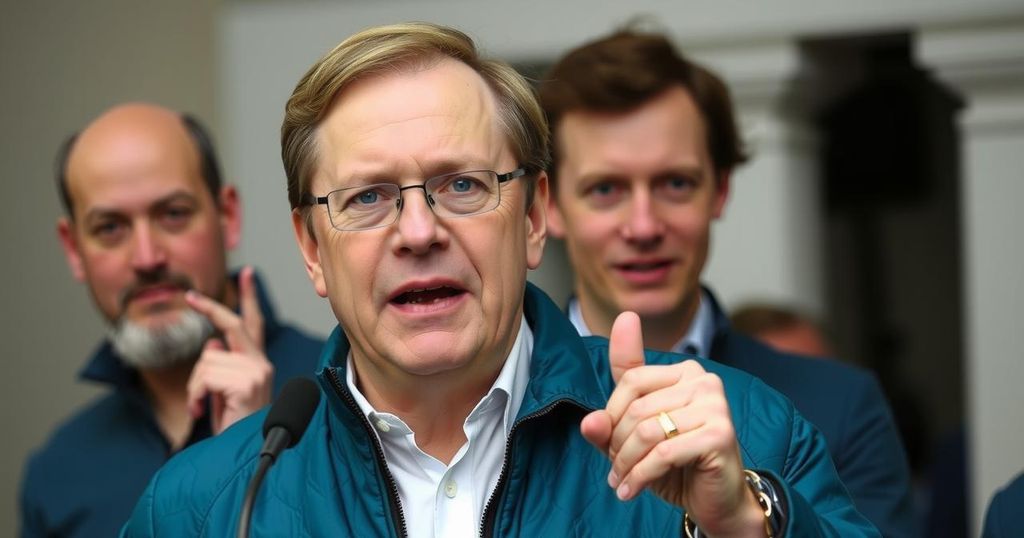German Government Responds to Musk’s Support for Far-Right AfD Party
The German government has downplayed Elon Musk’s endorsement of the far-right AfD party, as his opinion piece spurred public backlash and the resignation of a newspaper editor. Government officials noted Musk’s attempts to influence the upcoming federal election, highlighting the AfD’s right-wing extremism allegations. Musk claimed the AfD offers hope for Germany, although its mainstream viability remains contentious.
On Monday, the German government sought to mitigate the impact of Elon Musk’s support for the far-right Alternative for Germany (AfD) party during the lead-up to the national election. Musk’s endorsement, articulated in an opinion piece published over the weekend, instigated significant public backlash, resulting in the resignation of the opinion editor of the newspaper that featured his commentary. Government spokesperson Christiane Hoffmann acknowledged that Musk’s involvement aimed at influencing the federal election, despite the AfD being under surveillance from domestic intelligence for its right-wing extremism suspicions.
Musk characterized the AfD as the last hope for Germany, asserting that the party could usher in a future characterized by economic prosperity and technological innovation. This commentary marked the second occasion within a month that Musk expressed support for the AfD, which is facing considerable scrutiny and is largely ostracized by other political factions. Furthermore, the AfD’s leadership, represented by Alice Weidel, lacks a plausible path towards the chancellorship, given the reluctance of other parties to collaborate with them. Musk’s claims were met with skepticism, especially his challenge of the perception of the party as extremist, pointing out Weidel’s personal life as contradictory to such labels.
The context surrounding Elon Musk’s involvement in German politics is deeply intertwined with the approaching federal election, scheduled for February 23, following the collapse of Chancellor Olaf Scholz’s coalition government. The AfD, which is under scrutiny for potential far-right extremism, has gained traction, leading to concerns regarding foreign influence in domestic political discourse. Musk’s dual endorsements of the AfD have sparked a national debate regarding freedom of expression and the responsibilities of public figures when engaging in political matters, particularly in a foreign context.
In summary, Elon Musk’s recent endorsement of the AfD has provoked significant controversy and prompted reactions from the German government, indicating concerns over foreign interference in national politics. Despite the party’s rising popularity, it remains marginalized by mainstream political entities, with challenges to its extremist label continuing to fuel public discourse. The unfolding situation raises pertinent questions about the limits of free speech and the implications of foreign commentary in sensitive political terrains.
Original Source: www.voanews.com




Post Comment